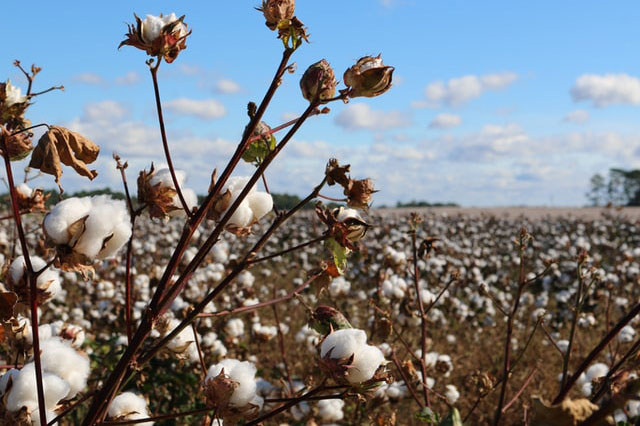Noumoutene – Malian cotton farmers are set to produce a bumper crop this year, but Mahamadou Konate is worried, belying the smile he wears as he paces through his field.
Economic and diplomatic sanctions recently imposed on the poor, conflict-torn Sahel state threaten one of its few economic motors: the cotton sector.
Mali has traditionally been one of Africa’s leading cotton producers. During growing season, the cash crop blankets swathes of the vast country in white. Locals call cotton “white gold”.
“If they sanction us, how are we going to sell our cotton abroad?” asks Konate, standing in the middle of one of his fields.
ALSO READ | Border standstill: Sanctions against Mali strand Ivorian truckers
Earlier this month, the West African bloc Ecowas imposed a trade embargo and shut borders with Mali over delayed elections in the country.
West African leaders also halted financial aid to Mali and froze the country’s assets at the Central Bank of West African States.
The move followed a proposal by Mali’s junta, which seized power in August 2020, to stay in power for up to five years before staging a vote – despite international demands that it respect a promise to hold a poll in February.
The sanctions threaten to damage an already vulnerable economy in landlocked Mali, where a brutal jihadist insurgency has raged since 2012.
As Mali’s second most important export after gold, cotton is a key source of foreign exchange.
“We’re all going to pay the price,” said Tiasse Coulibaly, head of a farmers’ association in southwestern Mali.
‘It’s over’
Every Malian worker is potentially affected by the sanctions, but cotton growers fear the measures will provoke spiralling problems in the industry.
The first is cash flow. Malian cotton growers sell to a state-controlled firm, the CMDT, which holds a monopoly. The closed borders and financial sanctions could hurt government coffers, affecting the ability to buy cotton.
The CMDT also gins the cotton – separating the plant’s fibre from its seeds – before exporting it through ports in neighbouring West African countries.
Now the border closures are hurting exports.
Still, many farmers predict they will not feel the full effects of the Ecowas sanctions until next year, because of how prices are set.
ALSO READ | Mali’s UN mission says flights resuming after suspension
Each year, the CMDT consults with farmers to set the price of cotton for the following November-May growing season.
This farmgate price is based on the value of raw cotton on international markets that year, as well as the economic results of the previous year’s cotton campaign.
As a result, poor sales this year because of sanctions may send prices plummeting in 2023, which would in turn push farmers to plant other crops – as they did last year.
Bakary Dembele, an industry figure in the cotton-growing heartland of southern Mali, warned of dire consequences if current stocks are not sold.
“Next year it’s over, there will be no more cotton,” he said.
Bumper crop
In 2021, farmers abandoned cotton and switched to other crops such as millet and maize because of low farmgate prices set by the CMDT.
But for the current season, the firm set a price of 280 CFA francs ($0.48, 43 euro cents) per kilo – its highest ever.
Malian farmers are expected to produce a bumper crop this year.
Malian cotton industry leaders told AFP that they expected to produce about 820,000 tonnes this cycle, compared with only 147,000 tonnes during the last.
ALSO READ | Sanctioned Mali to start flights to Guinea
So far, because of the sanctions, only about a third of what has been produced since the season began has been exported.
Konate fears that selling to the CMDT now will mean slow – if any – payments.
He usually earns several thousand dollars in an average season. However, the many children he employs earn a pittance of about 15 CFA francs per kilo.
“We set the price of cotton according to the world market, but if we don’t bring it to that market, what are we going to do?” he asked.
Neither Mali’s rural development ministry nor the CMDT responded to requests for comment.
Follow African Insider on Facebook, Twitter and Instagram
Source: AFP
Picture: Unsplash
For more African news, visit Africaninsider.com


